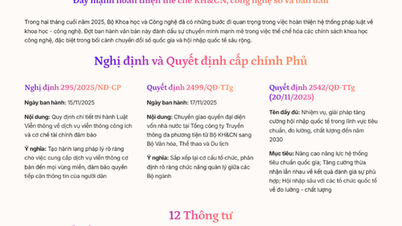
For a long time, psychologists and economists have struggled to find answers to the question of differences in each person's decision-making (Illustration: ST).
Based on nearly two decades of data from more than 3,900 older adults in the UK, a study has shown that individuals with higher IQs make fewer mistakes in their life predictions.
Conversely, people with lower IQs are often influenced by false expectations, leading to less beneficial decisions.
To test this, researchers asked a simple but challenging question: "How likely are you to live to be 75 or older?"
Participants' answers were compared with actual life expectancy statistics.
Results showed that people with high IQs made significantly more accurate predictions.
In particular, the group with the lowest IQ (2.5% of the population) had a forecast error twice as large as the group with the highest IQ (2.5% of the population).
This shows that the ability to assess the probability of future events is an extremely important advantage, not only in academia but in all aspects of life, from finance to health.
"Accurately assessing the likelihood of good and bad things happening to us is central to good decision-making," said lead researcher Professor Chris Dawson. "Almost all the decisions we make require an assessment of probability."
Because genes are inherited randomly and fixed, they are not affected by education or income, suggesting a causal role for intelligence.
It is therefore possible to see this randomness working like a natural experiment: If people with higher genetic scores for intelligence also make more accurate predictions, that is strong evidence that intelligence itself plays a causal role in shaping how accurately we judge an uncertain future.
Specifically, an increase of just 15 points in IQ can reduce forecasting errors by nearly 20%. People with high IQs also show much more consistency in their predictions over time, while people with low IQs tend to make unstable predictions.
This finding has important implications in a turbulent world . It suggests that part of the reason smarter people achieve success in life (health, finances, career) is because of their ability to realistically assess what the future holds.
This also raises questions about inequality. If some people have a natural advantage in making decisions, should society do more to support those who are less advantaged?
Professor Dawson suggests that presenting information such as health risks and financial advice as explicit probabilities, rather than forcing individuals to calculate them themselves, could help people make more informed decisions.
This research, published in the Journal of Personality and Social Psychology , is a powerful reminder of the role of intelligence and how we can leverage this knowledge to help society make better choices in the future.
Source: https://dantri.com.vn/khoa-hoc/nguoi-co-iq-cao-tien-tri-cuoc-doi-chuan-xac-hon-it-mac-sai-lam-20250713222626584.htm






![[Photo] Dan Mountain Ginseng, a precious gift from nature to Kinh Bac land](/_next/image?url=https%3A%2F%2Fvphoto.vietnam.vn%2Fthumb%2F1200x675%2Fvietnam%2Fresource%2FIMAGE%2F2025%2F11%2F30%2F1764493588163_ndo_br_anh-longform-jpg.webp&w=3840&q=75)




































































































Comment (0)